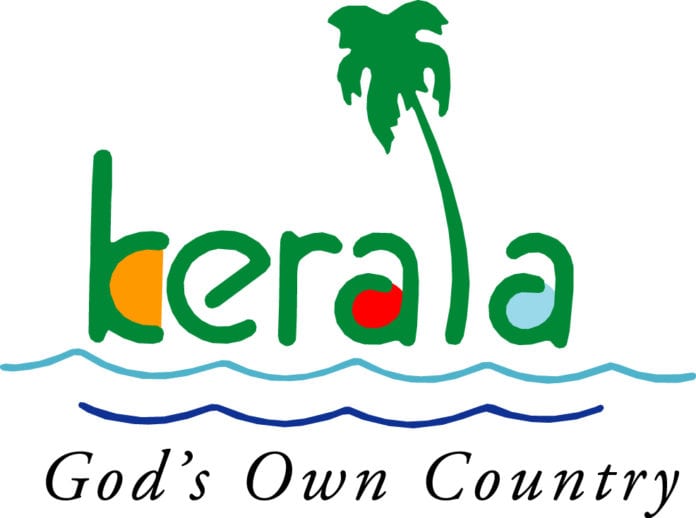Acclaimed by the National Geographic Traveler as “one of the 10 paradises of the world,” Kerala offers not just a bounty of unparalleled natural attractions, but a world of peace and serenity. That makes an experience in “God’s Own Country” truly out of this world.
With a 42-sqm stand, Kerala will be the partner of win at OTDYKH this 2018 edition. They will give a lucky winner 5 nights’ hotel accommodations. Kerala Tourism confirms that the event is one of the largest international autumn trade fairs for tourism in Russia and the CEI.
There has been an increase in the number of Russian visitors to Kerala, coupled with their interest in key products like Ayurveda, Backwaters, and the culture of the country. Therefore, they know that OTDYKH will serve as the best platform for highlighting the major attractions in Kerala, pushing again a major increase in Russian tourists.
Visiting the “Land of God”

Located on the tropical Malabar Coast of southwestern India, Kerala has been named as one of the 10 paradises of the world by National Geographic Traveler. Kerala is famous for its ecotourism initiatives and beautiful backwaters. Its unique culture and traditions and varied demography, have made Kerala one of the most popular tourist destinations in the world and a major contributor to the state’s economy.
Global marketing campaigns launched by the Kerala Tourism Development Corporation – the government agency that oversees tourism prospects of the state – during the 80s, laid the foundation for the growth of the tourism industry. In the decades that followed, Kerala Tourism transformed into one of the niche holiday destinations in India. The tag line, Kerala – God’s Own Country, was adopted in promotions and became a global super-brand.
By the early 2000s, tourism had grown into a full–fledged, multibillion-dollar industry. The state carved a niche for itself in the world industry, thus becoming one of the places with the “highest brand recall.” In 2003, Kerala became the fastest-growing tourism destination on the planet, and today continues with a rate of around 13%.
Well known for its beaches, backwaters in Alappuzha and Kollam, mountain ranges and wildlife sanctuaries, and other popular attractions, places to visit include the beaches at Kovalam, Varkala, Kollam, and Kapad; backwater tourism and lake resorts around Ashtamudi Lake, Kollam; hill stations and resorts at Munnar, Wayanad, Nelliampathi, Vagamon, and Ponmudi; and national parks and wildlife sanctuaries at Periyar, Parambikulam, and Eravikulam National Park.
The state’s agenda promotes ecologically-sustained tourism, which focuses on the local culture, wilderness adventures, volunteering, and personal growth of the local population. Efforts are taken to minimize the adverse effects on the natural environment of traditional tourism and enhance the cultural integrity of local people.
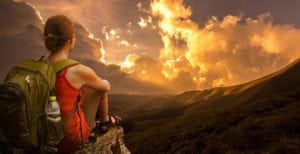 Varkala Beach
Varkala Beach
Explore the specialties of Kerala
Kerala is renowned for some of its unique cultural and geographical characteristics. The practices and traditions handed down from generation to generation, alongside some of the natural wonders that it have been blessed with have attracted people to this land for centuries. From the ancient healthcare system of Ayurveda to picturesque hill stations and diverse wildlife, it offers to visitors a wide range of attractions, the specialties of God’s Own Country.
Beaches for all tastes
Thanks to a 600-km long coastline that extends its entire length, 9 out of Kerala’s 14 districts have a beach to flaunt. Serene, secluded, and spellbinding, some of them are among the best in the world. While Kovalam is perhaps the most famous of beaches, there are several lesser-known ones, where one can experience the bliss of solitude. The beaches of Kerala are inseparably linked with the land’s history. Here, visitors will find the footprints of ancient travelers and explorers in the sands of time.
Backwaters
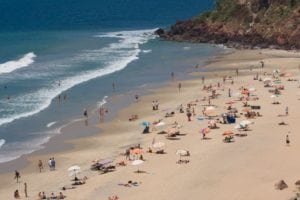
The essence of Kerala is its backwaters, a unique geographical formation comprising a network of lagoons, lakes, estuaries, and canals which form the basis of a distinct lifestyle. The people here lead a life centered around water with waterways replacing roads. A journey in a houseboat is the ideal way to discover the beauty of Kerala.
Known as kettuvallams, the houseboats of Kerala offer exquisite holiday experiences. Most of them come with bath-attached bedrooms, a living room, open deck, and a kitchenette. The crew – an oarsman, a cook and, if required, a guide – ensure a voyage filled with simple pleasures, exotic sights, and memorable experiences. During Onam, the harvest festival (August to September), the serene backwaters become vibrantly alive as the venue for the legendary snake boat races of Kerala.
Hill stations
Kerala has a number of enchanting hill resorts, punctuated with cool plantations of tea and spices. These hills are embroidered with meandering roads, rivulets, springs, and waterfalls and are much sought after by adventure sport enthusiasts thanks to the excellent options for trekking and paragliding, etc. With its sprawling tea plantations, picture-book towns, winding lanes, and various holiday facilities, Munnar is one of the most popular hill stations in Kerala and one most sought after by honeymooners.
Ayurveda
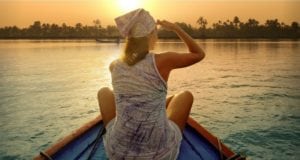
At Kerala, the holistic system of medicine based on nature, Ayurveda is practiced to perfection. Long before the world discovered the magical power of Ayurveda, Keralites had made it part of their lives. The State’s equable climate and natural abundance of forests (with a wealth of herbs and medicinal plants) make it an ideal destination for Ayurveda. Ancient texts prescribe Kerala’s cool monsoon season (June to November) – when the atmosphere remains dust-free and fresh and opens the pores of the body to the maximum – as the perfect time for the treatments of Ayurveda.
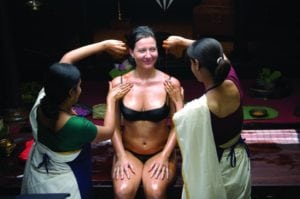
Wildlife
Nestled in the lush forests of Kerala are 12 wildlife sanctuaries and 2 national parks with rare flora and fauna. Among these are the Neelakurunji, the exotic blue flower that washes the Munnar hillsides in blue once every 12 years, and the endangered Nilgiri Tahr. More than half the world population of the Nilgiri Tahr roam the hills of Eravikulam near Munnar. The attractive assortment of fauna in the forests of Kerala includes animals like elephants, sambar deer, leopard, lion tailed macaque, gaur, sloth bear, tiger, wild boar, bonnet macaque, and the Malabar giant squirrel.
Waterfalls
Kerala is popular for having majestic waterfalls. These scintillating cascades are famous picnic spots and excursion destinations around the year. The luscious Kerala waterfalls are a sight visitors’ eyes will never tire of feasting upon.
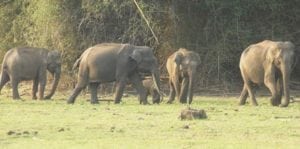 Athirappalli and Vazhachal Waterfalls in Thrissur
Athirappalli and Vazhachal Waterfalls in Thrissur
Cuisine
Typical Kerala cuisine is strongly flavored and marked by liberal use of coconut. (The State produces 60% of India’s coconut.) Rice is the staple diet. Kerala wakes up to one of the best breakfasts in the world – both in terms of taste and nutritional value – like puttu (made of rice flour and coconut) and kadala (gram) curry, idiappam (noodle-like rice cakes), egg/vegetable curry, appam (soft-centered lacy pancakes), and mutton/vegetable stew. Served on a plantain leaf and eaten with the hand, the sadya is the traditional feast of Kerala. A 3-course meal, the sadya includes an amazing variety of up to 40 vegetarian delights. Among non-vegetarian delights are the sea and backwater delicacies like prawns, lobsters, crabs, and mussels, etc., all enticingly cooked with exotic spices. Karimeen, or pearlspot, a backwater fish is famous for its great taste.
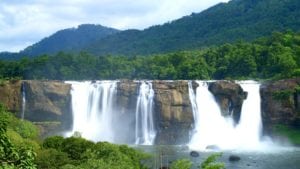
Traditional Festivals
Kerala hosts a plethora of traditional festivals throughout the year. A wide number of regions and communities are involved in these celebrations. The State unites to commemorate these great occasions together and the entire place is covered in lights. There are huge processions and massive displays on the street with crowds thronging to soak in the pomp and splendor. Families gather from various corners of the world for these events and giant feasts are held. Festivals are among the best times to visit the State as they encompass what it truly means to be a Keralite.
In short, the unique set of geographical features of Kerala, the diversity of its culture and traditions, and its flora and fauna, make this Land of God one of the most sought-after tourist destinations in Asia. Each of its charming places is only 2 hours away by car, a unique advantage that few countries on the planet can offer. Kerala prides itself on the way in which its culture respects the past, while advancing in growth and progress.
Photos courtesy of Kerala Tourism

